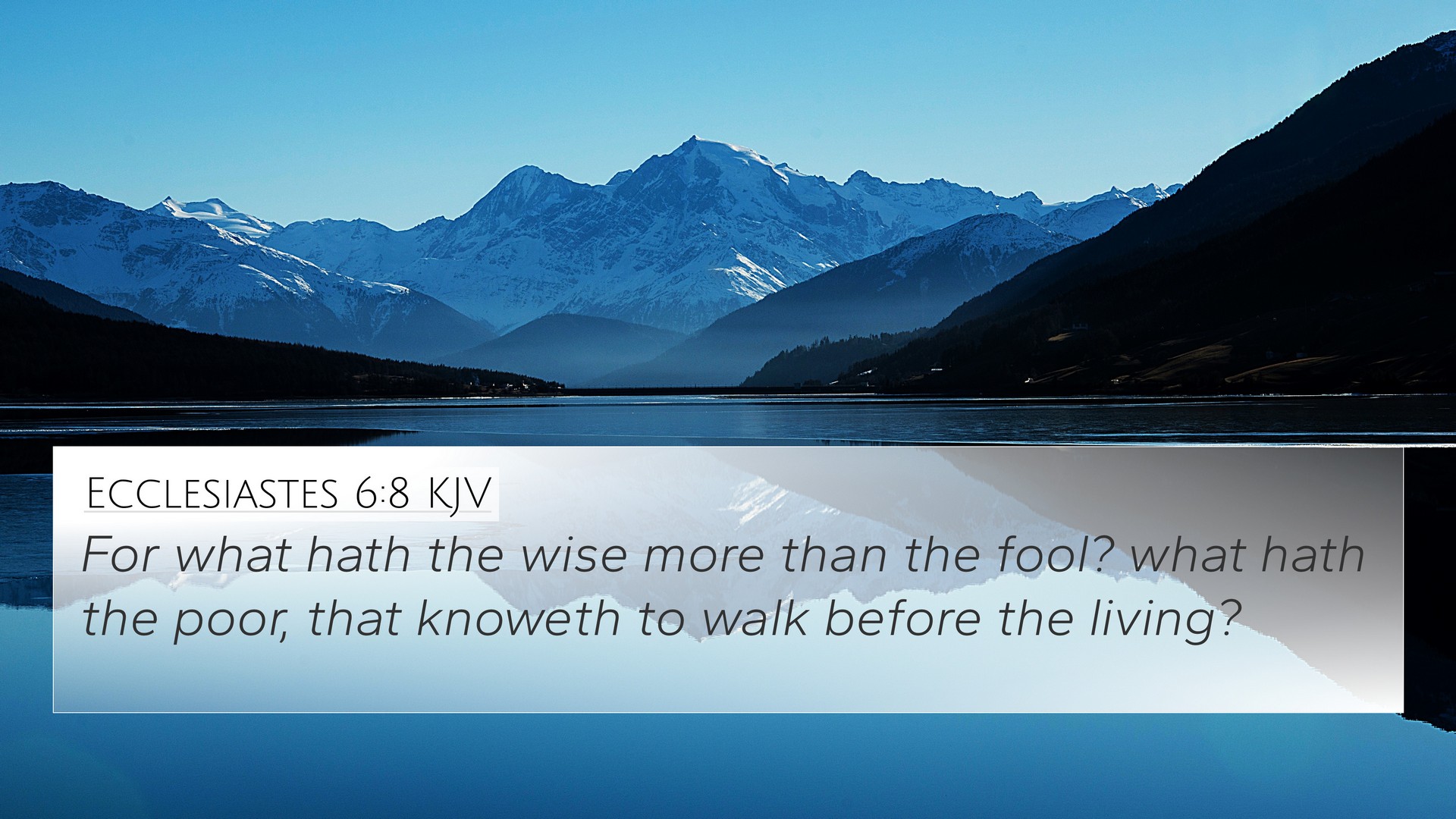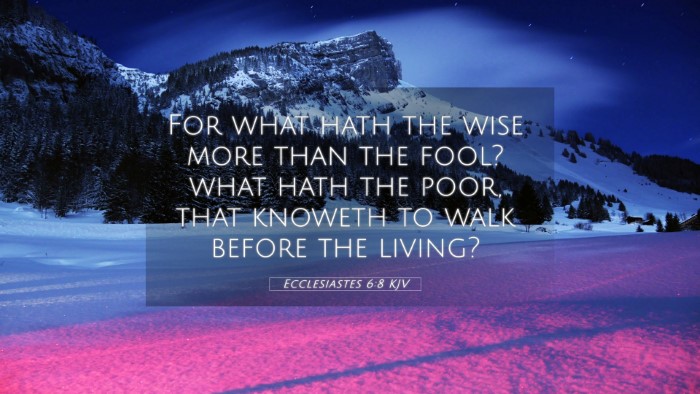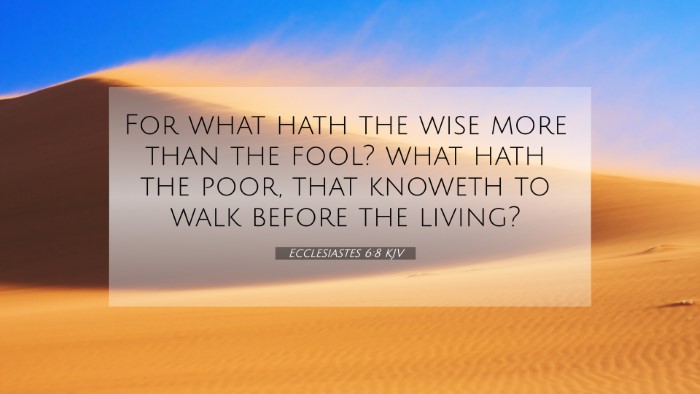Old Testament
Genesis Exodus Leviticus Numbers Deuteronomy Joshua Judges Ruth 1 Samuel 2 Samuel 1 Kings 2 Kings 1 Chronicles 2 Chronicles Ezra Nehemiah Esther Job Psalms Proverbs Ecclesiastes Song of Solomon Isaiah Jeremiah Lamentations Ezekiel Daniel Hosea Joel Amos Obadiah Jonah Micah Nahum Habakkuk Zephaniah Haggai Zechariah MalachiEcclesiastes 6:8 Similar Verses
Ecclesiastes 6:8 Cross References
For what hath the wise more than the fool? what hath the poor, that knoweth to walk before the living?
Uncover the Rich Themes and Topics of This Bible Verse
Listed below are the Bible themes associated with Ecclesiastes 6:8. We invite you to explore each theme to gain deeper insights into the Scriptures.
Ecclesiastes 6:8 Cross Reference Verses
This section features a detailed cross-reference designed to enrich your understanding of the Scriptures. Below, you will find carefully selected verses that echo the themes and teachings related to Ecclesiastes 6:8 KJV. Click on any image to explore detailed analyses of related Bible verses and uncover deeper theological insights.
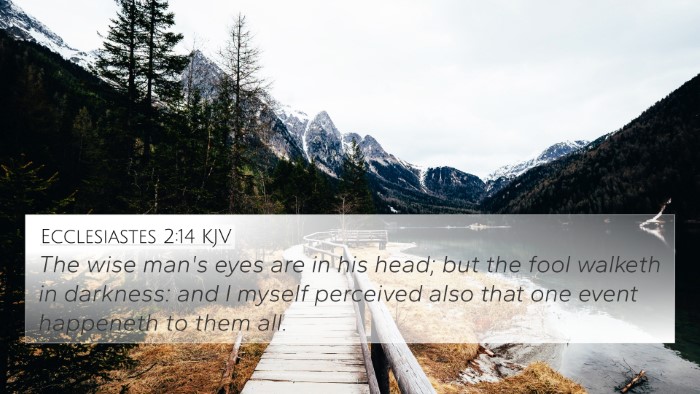
Ecclesiastes 2:14 (KJV) »
The wise man's eyes are in his head; but the fool walketh in darkness: and I myself perceived also that one event happeneth to them all.
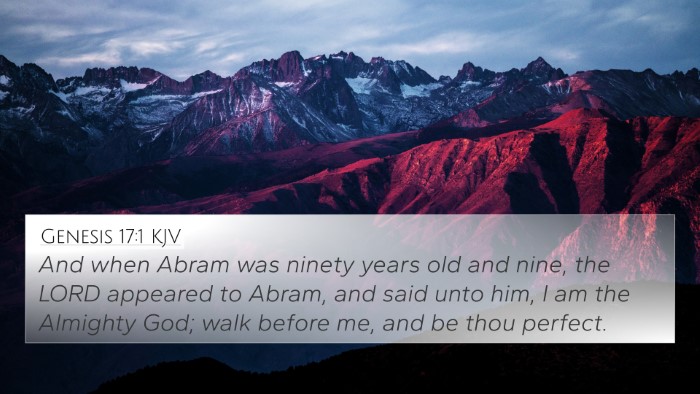
Genesis 17:1 (KJV) »
And when Abram was ninety years old and nine, the LORD appeared to Abram, and said unto him, I am the Almighty God; walk before me, and be thou perfect.

Psalms 101:2 (KJV) »
I will behave myself wisely in a perfect way. O when wilt thou come unto me? I will walk within my house with a perfect heart.
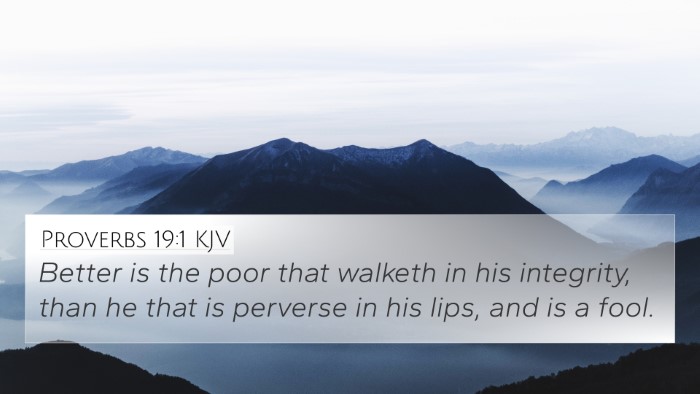
Proverbs 19:1 (KJV) »
Better is the poor that walketh in his integrity, than he that is perverse in his lips, and is a fool.
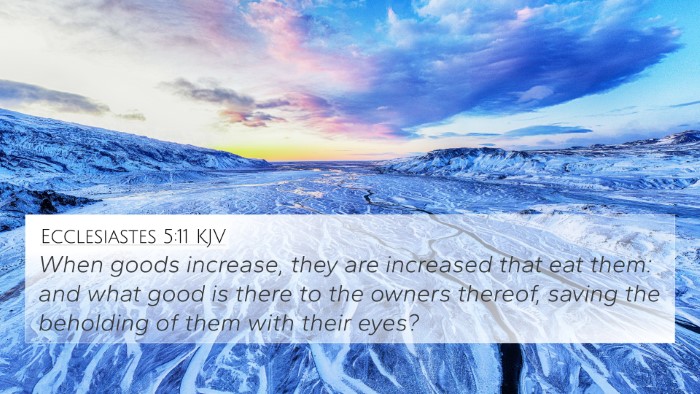
Ecclesiastes 5:11 (KJV) »
When goods increase, they are increased that eat them: and what good is there to the owners thereof, saving the beholding of them with their eyes?
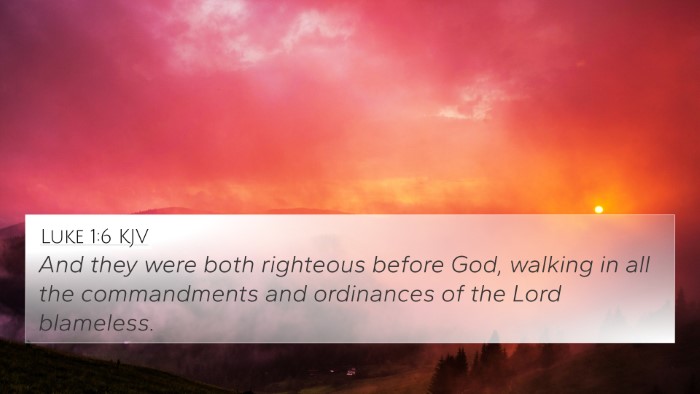
Luke 1:6 (KJV) »
And they were both righteous before God, walking in all the commandments and ordinances of the Lord blameless.
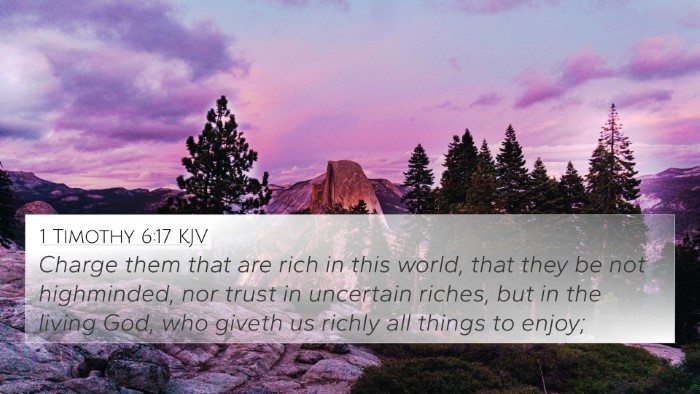
1 Timothy 6:17 (KJV) »
Charge them that are rich in this world, that they be not highminded, nor trust in uncertain riches, but in the living God, who giveth us richly all things to enjoy;
Ecclesiastes 6:8 Verse Analysis and Similar Verses
Understanding Ecclesiastes 6:8
Ecclesiastes 6:8 states: "For what has the wise more than the fool? What has the poor that knows to walk before the living?” This verse touches on profound themes regarding wisdom, wealth, and the nature of existence.
Interpretation and Insights
Ecclesiastes 6:8 poses a rhetorical question, prompting the reader to reflect on the relative value of wisdom and wealth in life. The verse suggests that, in many circumstances, wisdom does not offer a distinct advantage over folly when one considers the enduring aspects of life.
Matthew Henry's Commentary
Matthew Henry emphasizes the futility of human pursuits. He interprets this verse as highlighting the superficiality of wisdom when it does not lead to meaningful differences in the outcomes of life. He suggests that both the wise and the fool face the same fate in mortality, signaling a restriction on the eternal benefits of such human qualities. Wisdom, in this context, does not shield individuals from the harsh realities of life, reminding us to seek something greater than mere knowledge.
Albert Barnes' Notes
Albert Barnes analyzes the context of the wise and the foolish, proposing that the rich and powerful do not inherently possess a deeper understanding of life's meaning than the poor and uneducated. He notes that the knowledge of living wisely—"walking before the living"—points to a practice of wisdom that reflects one's actions and choices in life. Thus, Barnes highlights the importance of living a life that demonstrates wisdom rather than merely possessing it as theoretical knowledge.
Adam Clarke's Commentary
Adam Clarke provides further insight into the socio-economic implications of this verse. He posits that the verse reflects a greater existential concern: the lack of substantial difference in one's standing before God as a wise man versus a fool. Both classes, regardless of their earthly wisdom or folly, ultimately share similar destinies, suggesting that material wealth and wisdom are transient and that understanding one's purpose and moral choices remains fundamental.
Key Themes and Connections
Through the reflections of these commentaries, we can identify several central themes:
- The Impermanence of Life: Both wisdom and status are temporary.
- The Nature of Wisdom: True wisdom is demonstrated by actions, not merely theoretical knowledge.
- Equality in Mortality: All human beings, regardless of their wisdom or wealth, face death.
- The Pursuit of Meaning: Life's true purpose lies beyond wealth and superficial achievements.
Bible Verse Cross-References
Ecclesiastes 6:8 invites exploration of related scriptures to build a deeper understanding. Below are 10 Bible Cross-References that connect meaningfully with this verse:
- Proverbs 21:17 - "He who loves pleasure will be a poor man; he who loves wine and oil will not be rich."
- Proverbs 16:16 - "How much better to get wisdom than gold! And to get understanding is to be chosen rather than silver."
- Ecclesiastes 2:14 - "The wise man's eyes are in his head, but the fool walks in darkness."
- Job 28:12-13 - "But where shall wisdom be found? And where is the place of understanding? Men do not know the way to it, and it is not found in the land of the living."
- Psalm 49:10 - "For he sees that even the wise die; the fool and the stupid alike must perish and leave their wealth to others."
- Ecclesiastes 3:19 - "For what happens to the children of man and what happens to the beasts is the same; as one dies, so dies the other."
- Proverbs 11:4 - "Riches do not profit in the day of wrath, but righteousness delivers from death."
- Luke 12:15 - "And he said to them, 'Take care, and be on your guard against all covetousness, for one's life does not consist in the abundance of his possessions.'"
- James 1:10 - "And the rich in his humiliation, because like a flower of the grass he will pass away."
- Ecclesiastes 7:12 - "For wisdom is a defense as money is a defense, but the excellence of knowledge is that wisdom gives life to those who have it."
Conclusion
In summary, Ecclesiastes 6:8 serves as a powerful reminder of life's transient nature and the equalizing force of mortality. The interpretations offered by Matthew Henry, Albert Barnes, and Adam Clarke converge on the idea that earthly wisdom and wealth do not determine one's true worth or understanding of life. By reflecting on the cross-references, readers can further explore the biblical discourse on wisdom, folly, and the search for meaning beyond outward appearances.
Thematic Connections and Applications
As we ponder the connections between Bible verses and the themes they explore, it becomes clear that Ecclesiastes 6:8 resonates with numerous passages throughout scripture. By engaging in cross-referencing biblical texts, we deepen our comprehension of wisdom's place in our lives and its relationship with materialism, reminding us that our ultimate focus should be on seeking a greater understanding of our purpose in God's design.
